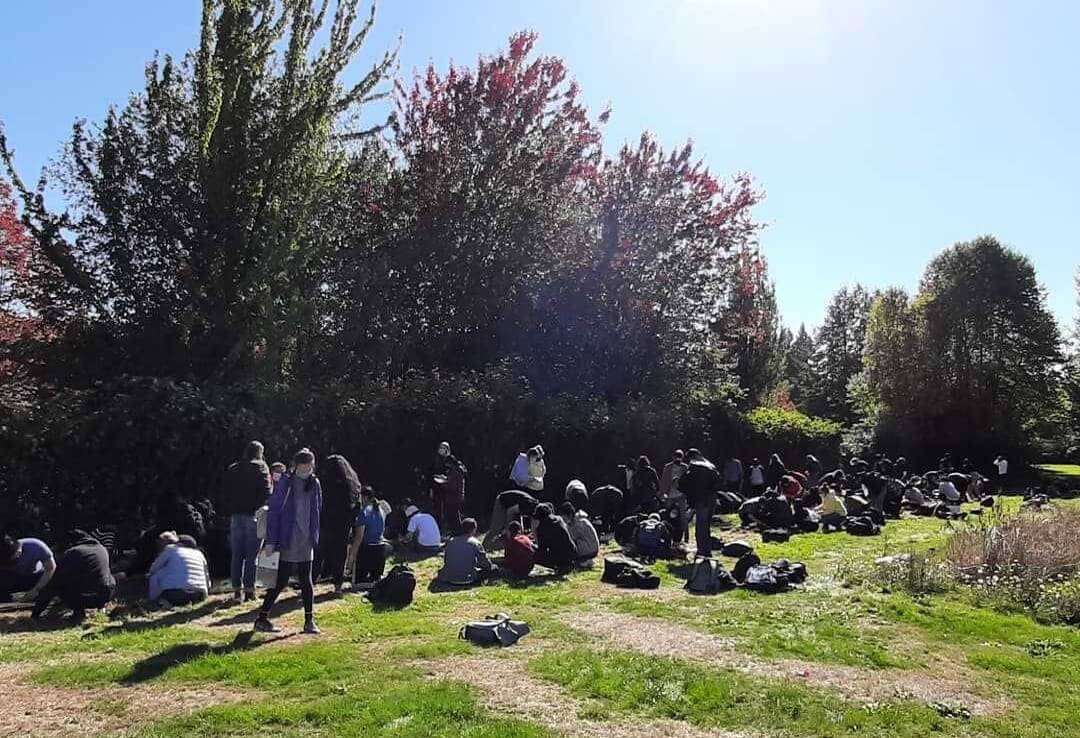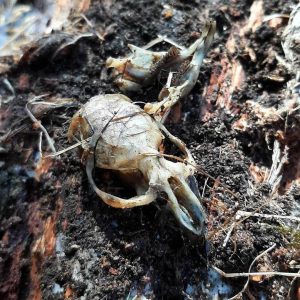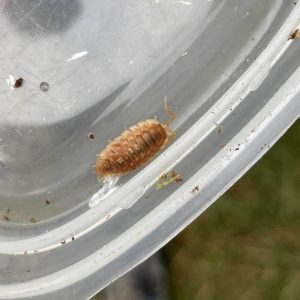
Students in Rachel Wilson’s BIOL 230 (Fundamentals of Ecology) course recently went to Totem Plant Science Field Station on the UBC campus to look for isopods and contribute to an ongoing long-term experiment dating back to 2009.
Rachel was especially excited to return to the site this term after a pandemic-caused hiatus. “This trip was extremely enjoyable, as it was my first time leading an in-person lab since February 2020. It was such a rush to be back in the field with students!”
What were you trying to achieve?
Each term, the class estimates the population size of isopods through mark-recapture in this location. Students work together in small groups to collect isopods from underneath a series of logs, then they measure their size and mark them over the course of 4 days. Finally, they pool all their data and estimate the size of the population. Because we repeat this experiment twice a year, we can assess seasonal and interannual changes in population size!
How did it go?
Naturally, there were a few curveballs thrown our way. Most concerningly, the site had become overgrown and the logs used by the isopods had deteriorated. However, this also led to some interesting sightings; for example, we encountered a few small mammals (some alive, some not so much), which usually wouldn’t happen.

What did you find?
Although I’ve run this lab many times before, there were some new discoveries on this trip. One student collected an isopod that was in the process of giving birth and caught it on video. I’d always assumed isopods lay eggs, but it turns out that they carry their eggs and give birth, rather than laying eggs! Another student managed to find an isopod that was bright orange. I knew orange isopods were bred for terrariums, but I’ve never seen a naturally occurring one!

How did the students respond?
It was obvious that students were having a lot of fun handling and marking the isopods. I heard plenty of laughter and socializing as I walked around. After a year and a half on Zoom, I imagine the students were nearly as jazzed as I was!
What else would you like to share?
I think it’s beneficial for students to learn that you don’t need to charter a helicopter into the middle of the Amazon to do ecology. There are plenty of opportunities to ask interesting scientific questions right here on campus!